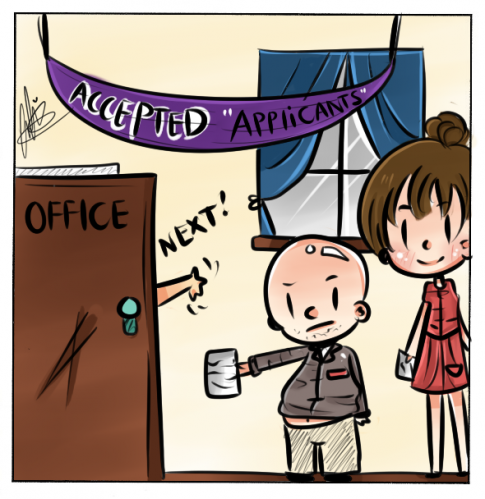Don’t Take Weight Discrimination Lightly
“Dear obese PhD applicants: if you don’t have enough willpower to stop eating carbs, you won’t have the willpower to do a dissertation #truth.”
Imagine being a student who graduated at the top of your class despite some struggles with your weight, and then seeing this trending tweet from Dr. Geoffrey Miller, a professor you admire. Now picture a T.V. reporter who has to worry about getting fired because her above average weight could be repulsive to viewers. Unfortunately, this was the case for Good Morning America correspondent Tory Johnson.
We may not notice it, but we judge a book by its cover far too often, especially when it comes those who are overweight. They are routinely discriminated against within society, attached to the persistent stigma of being lazy and lacking self-control. Some may believe that deriding people for their obesity will motivate them to live healthier lifestyles, but shame is hardly an effective catalyst for change. Instead of ridiculing and demeaning the overweight, a more effective way to assist them in becoming healthier individuals would be through words of encouragement and support.
Many believe that obesity is a simple issue that can be easily resolved through eating fewer calories and exercising more often, however, it is much easier said than done. Being obese is not always a voluntary decision in any shape or form. Even with the utmost devotion, recovering from obesity is an arduous task that involves the maintenance of a meticulously healthy lifestyle where even the smallest slip-up is not tolerated. In addition, genes can play a role in one’s predisposition to weight gain; such a person may find it much more difficult to substantially lose weight compared to another on the same diet. If one had not personally experienced the struggle of losing weight, it would be sanctimonious of one to judge another for being “lazy.”
Moreover, the media do not improve matters concerning the encouragement of people who are overweight. “Fattertainment” is both popular and a breeding ground for obesity stereotypes, according to Obesity Action Coalition, (OAC). Overweight characters are often portrayed as acceptable targets and the butt of tasteless jokes. Studies show that obese female characters are often mocked by male characters, and even in 40 percent of children’s movies, at least one overweight character is disliked, according to OAC. In addition, “shocking” headlines continuously chide celebrities for gaining a little weight and looking more like an average human being. These tell the public that beauty is unrealistic thinness, which only results in insecurity and unnecessary stress.
Weight discrimination even manifests in the form of workplace bias and medical care. A 2012 study published in the International Journal of Obesity concluded that obese women applicants with the same qualifications as non-obese women applicants receive lower starting salaries, have fewer perceived leadership qualities and were less likely to be selected for the job.
Also, according to a study published by Wake Forest School of Medicine in May 2013, doctors are less likely to respect obese patients as they assume that the patients will not listen to treatment plans. In some cases, the bosses and doctors were not even aware that they were treating overweight people differently; they just attributed stereotypical traits to them. It is important to be aware of subconscious biases so that people are treated solely on their character and merit.
The pressures to scour the prominent obesity epidemic out of America may be resulting in overzealous, hurtful attitudes. However, compassion and awareness are key in combating this issue. In order for change to occur, overweight people should know that they are being supported and that they have the ability to create a healthier life for themselves.
